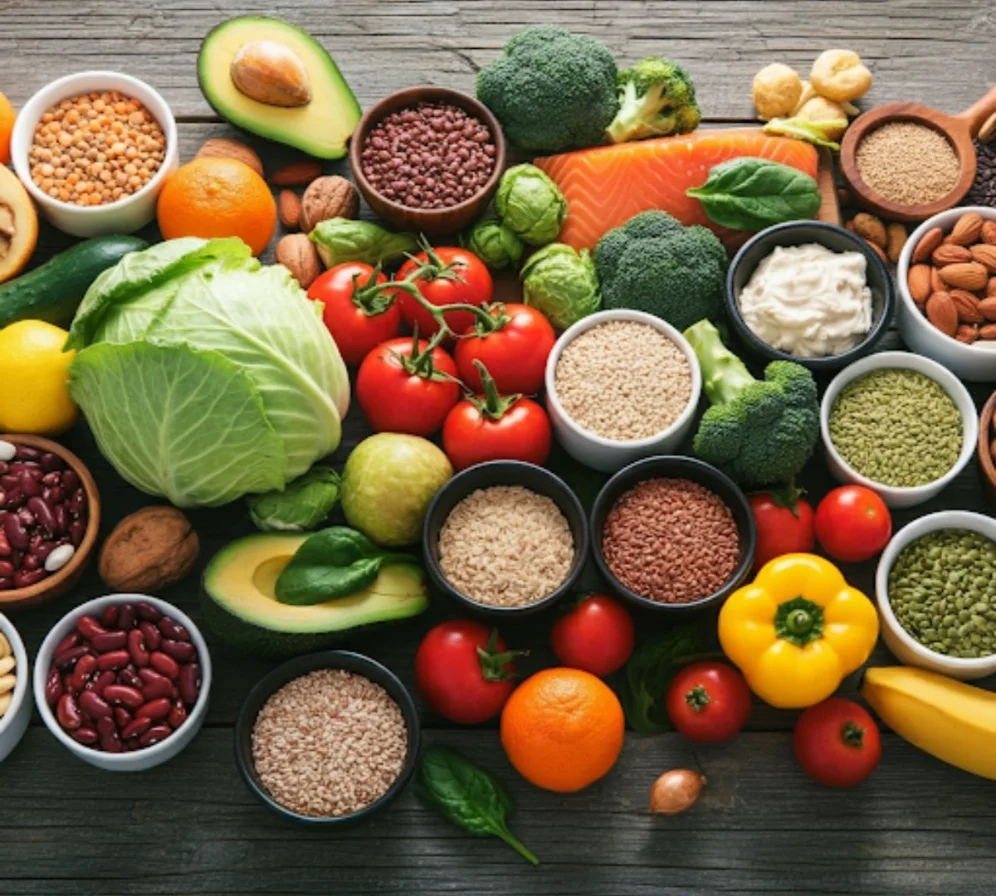Imagine a vibrant, energetic you, brimming with health and vitality. Imagine a lighter environmental footprint, a world where sustainability thrives. This is the power of a plant-based diet, and it’s within your reach.
In this comprehensive guide, we’ll delve into the world of plant-based eating, exploring its potential to transform your health, fitness, and the planet. We’ll cover everything you need to know, from the basics of plant-based diets to the essential nutrients you need to thrive. We’ll also address common challenges and provide delicious recipes to get you started on your plant-powered journey.
Ready to unlock vibrant health, boundless energy, and a lighter environmental footprint? Let’s begin your plant-based adventure!
Types of Plant-Based Diets
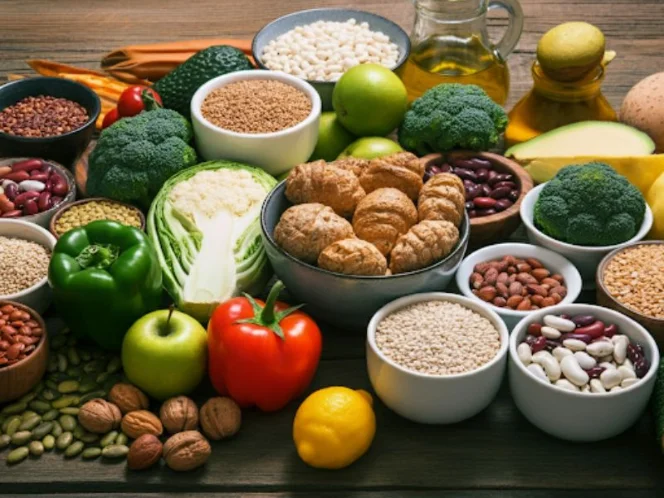
The world of plant-based eating encompasses a diverse spectrum of dietary choices, each offering unique benefits and approaches. Understanding these variations can empower you to find the perfect plant-based fit for your lifestyle and preferences.
1. Vegan:
Embracing a fully vegan lifestyle means excluding all animal products from your diet. This includes meat, poultry, fish, dairy, eggs, and honey. Vegans choose this path for various reasons, including ethical concerns about animal welfare, environmental sustainability, and potential health benefits.
Aligning with Vegan Values:
For many vegans, the core motivation lies in aligning their dietary choices with their ethical values. They believe that animals deserve respect and freedom from exploitation, and a vegan diet is a powerful way to express this conviction.
Environmental Benefits:
Animal agriculture is a significant contributor to greenhouse gas emissions, deforestation, and water pollution. By adopting a vegan diet, you can significantly reduce your environmental impact and contribute to a more sustainable future.
Health Potential:
Studies suggest that plant-based diets may offer various health advantages, including a reduced risk of heart disease, type 2 diabetes, and certain cancers. Vegans often experience improved weight management, increased energy levels, and better gut health.
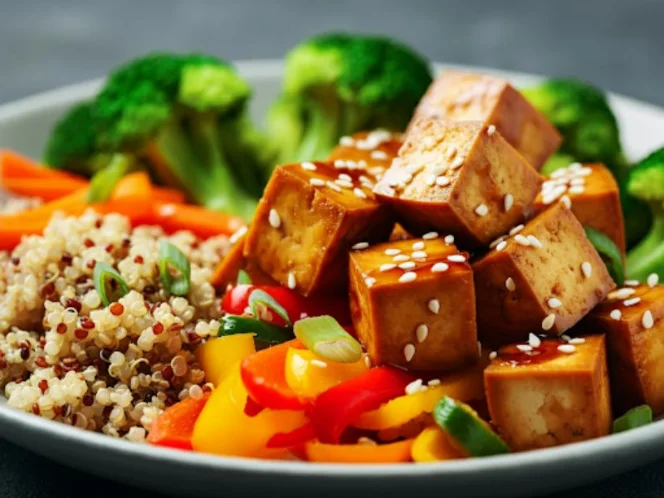
2. Vegetarian:
Vegetarianism encompasses a broader range of dietary patterns that exclude meat, poultry, and fish but may include dairy and eggs. This flexibility allows individuals to tailor their vegetarian approach to their personal preferences and health needs.
Lacto-Ovo Vegetarian:
This variation incorporates dairy products and eggs alongside plant-based foods. Lacto-ovo vegetarians often cite ethical concerns about factory farming or a desire to reduce their meat consumption as motivations for this choice.
Lacto-Vegetarian:
Lacto-vegetarians enjoy dairy products like milk, cheese, and yogurt while excluding eggs from their diet. This approach may be influenced by cultural traditions, personal preferences, or potential allergies.
Ovo-Vegetarian:
Ovo-vegetarians include eggs in their diet but avoid meat, poultry, fish, and dairy products. This choice can be driven by ethical considerations, dietary restrictions, or simply a preference for eggs as a protein source.
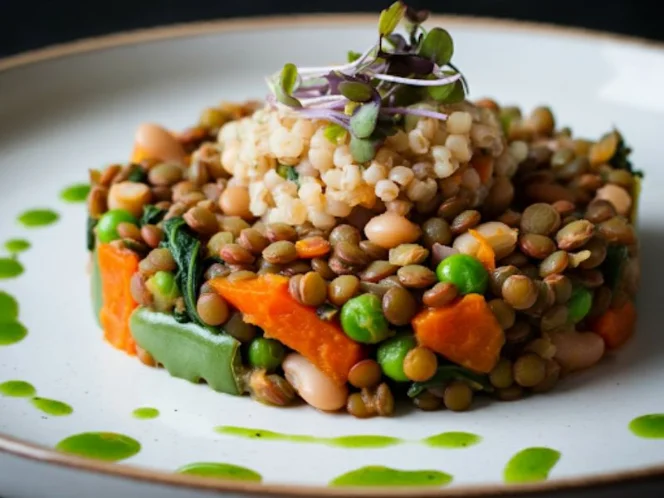
3. Flexitarian:
Flexitarianism embraces a primarily plant-based diet with occasional inclusion of animal products. This flexible approach allows individuals to enjoy the benefits of plant-based eating while incorporating meat or fish into their diet in moderation.
A Balanced Approach:
Flexitarianism provides a balanced approach for those who are curious about exploring plant-based eating but may not be ready to commit to a fully vegan or vegetarian lifestyle. It allows for gradual dietary shifts and experimentation, making it a sustainable and accessible entry point into the world of plant-based eating.
Catering to Individual Needs:
Flexitarianism can be tailored to individual needs and preferences. Some flexitarians may choose to include meat or fish once a week, while others may opt for occasional pescatarian meals. This flexibility empowers individuals to find a plant-based approach that aligns with their lifestyle and health goals.

Addressing Your Plant-Based Queries

Embarking on a plant-based journey often comes with questions and curiosities. Let’s explore some common queries to provide clarity and guidance as you navigate the world of plant-based eating.
Is a plant-based diet healthy?
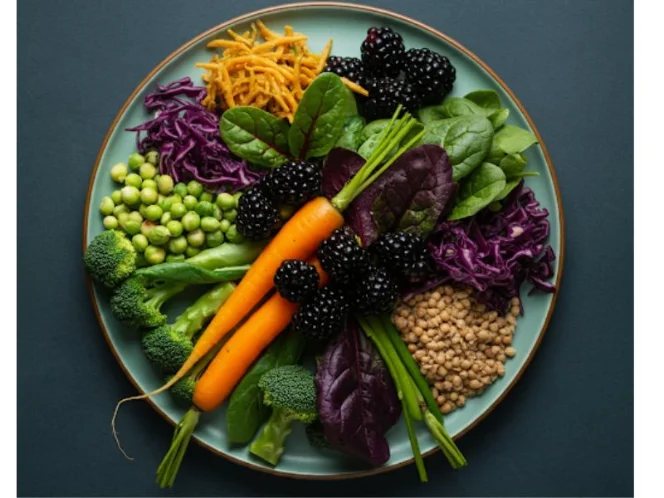
Absolutely! A well-planned plant-based diet can be incredibly healthy, providing a wealth of essential nutrients and promoting overall well-being. Research consistently links plant-based eating to a reduced risk of chronic diseases, including heart disease, type 2 diabetes, and certain cancers.
Plant-based diets are naturally rich in fiber, vitamins, minerals, and antioxidants, all of which play crucial roles in maintaining optimal health. They can also help with weight management, improve digestion, and boost energy levels.
However, it’s essential to ensure your plant-based diet is balanced and provides all the necessary nutrients. Pay attention to key nutrients like protein, iron, calcium, vitamin B12, and omega-3 fatty acids, which we’ll discuss in more detail later.
Where do you get protein on a plant-based diet?
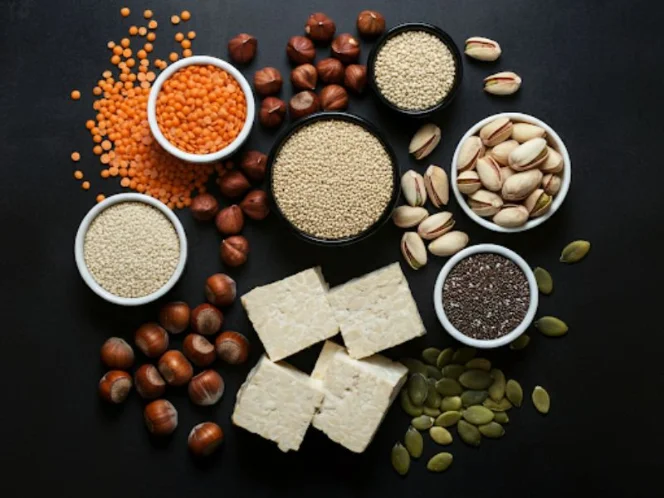
Contrary to popular belief, protein is abundant in the plant kingdom! You can easily meet your protein needs on a plant-based diet by incorporating a variety of protein-rich foods into your meals.
Excellent sources of plant-based protein include:
- Legumes: Lentils, chickpeas, black beans, kidney beans
- Soy products: Tofu, tempeh, edamame
- Nuts and seeds: Almonds, walnuts, chia seeds, hemp seeds
- Whole grains: Quinoa, brown rice, oats
- Other: Certain vegetables like broccoli and spinach also contribute to your protein intake.
By combining different plant-based protein sources throughout the day, you can ensure you’re getting all the essential amino acids your body needs to thrive.
Can athletes thrive on a plant-based diet?

Absolutely! Many elite athletes across various disciplines follow plant-based diets and achieve peak performance. Plant-based foods provide the necessary carbohydrates for energy, protein for muscle repair and growth, and healthy fats for overall health and recovery.
Plant-based diets are also rich in nitrates, which can enhance athletic performance by improving blood flow and oxygen delivery to muscles. Additionally, the abundance of antioxidants in plant-based foods helps to reduce inflammation and oxidative stress, promoting faster recovery and reducing the risk of injury.
With proper planning and attention to essential nutrients, athletes can not only thrive but excel on a plant-based diet.
What are the challenges of a plant-based diet?

While plant-based diets offer numerous benefits, there are also potential challenges to consider:
- Nutrient deficiencies: It’s essential to pay attention to specific nutrients that may be lacking in a poorly planned plant-based diet, such as vitamin B12, iron, calcium, and omega-3 fatty acids.
- Social situations: Eating out or attending social events where plant-based options are limited can sometimes be challenging.
- Meal planning and preparation: It may require more planning and preparation to ensure you’re getting a balanced and varied plant-based diet.
However, with awareness and proactive strategies, these challenges can be easily overcome. Resources like plant-based cookbooks, meal planning apps, and online communities can provide support and guidance. Consulting a registered dietitian can also be helpful, especially if you have specific dietary needs or health concerns.
Essential Nutrients on a Plant-Based Diet: Fueling Your Body and Mind
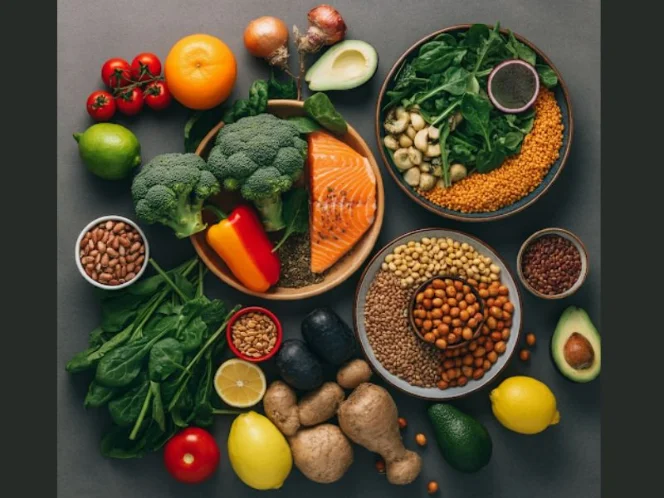
While plant-based diets offer a wealth of nutrients, it’s essential to be mindful of specific vitamins and minerals that may require extra attention. By understanding these key nutrients and their plant-based sources, you can ensure your body is properly fueled for optimal health and vitality.
Protein: The Building Blocks of Life
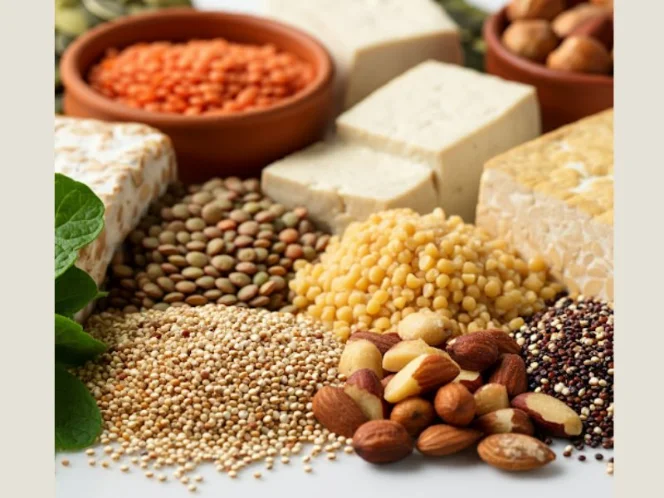
Protein plays a vital role in building and repairing tissues, producing enzymes and hormones, and supporting a healthy immune system. It’s essential for everyone, but especially crucial for athletes, growing children, and pregnant or breastfeeding women.
Fortunately, plant-based diets offer an abundance of protein sources. Legumes like lentils, chickpeas, and black beans are excellent choices, as are soy products like tofu and tempeh. Quinoa, a complete protein source, is another great option, along with nuts, seeds, and certain vegetables like broccoli and spinach.
By incorporating a variety of these protein sources throughout your day, you can easily meet your protein needs and support your body’s vital functions.
Iron: The Oxygen Carrier
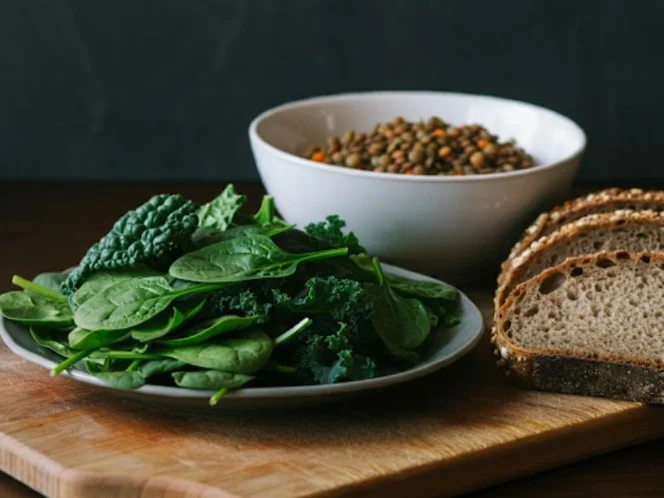
Iron is crucial for transporting oxygen throughout your body, supporting energy production and overall vitality. While iron deficiency is a common concern, especially among women, it can be easily prevented with a well-planned plant-based diet.
Plant-based sources of iron include leafy green vegetables like spinach and kale, legumes such as lentils and beans, fortified cereals, and dried fruits like raisins and apricots.
To enhance iron absorption from plant-based sources, pair them with vitamin C-rich foods like citrus fruits, berries, or bell peppers.
Calcium: The Bone Builder
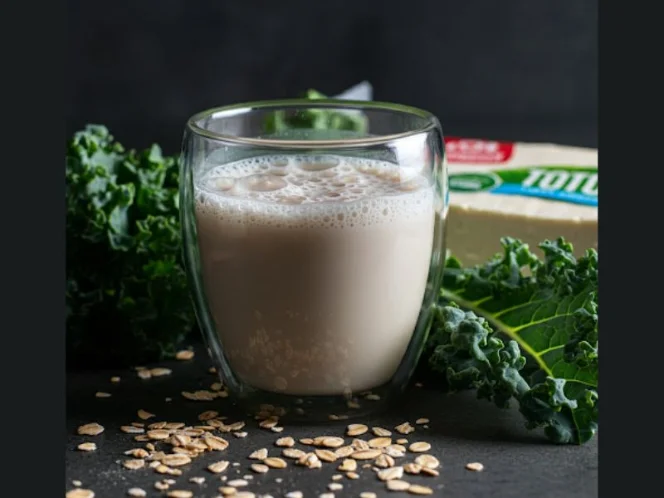
Calcium is essential for building and maintaining strong bones and teeth, preventing osteoporosis, and supporting nerve and muscle function. While dairy products are often associated with calcium, plant-based diets offer plenty of calcium-rich options.
Leafy green vegetables like kale, collard greens, and bok choy are excellent sources of calcium. Fortified plant-based milk, such as almond milk or soy milk, also provide significant amounts of calcium. Tofu, especially calcium-set tofu, is another good source.
Vitamin B12: The Nerve and Blood Supporter

Vitamin B12 plays a crucial role in nerve function, red blood cell production, and DNA synthesis. It’s primarily found in animal products, making it a nutrient of concern for those following a vegan diet.
Vegans can obtain vitamin B12 through fortified foods, such as plant-based milk, breakfast cereals, and nutritional yeast. However, supplementation may be necessary to ensure adequate intake.
Regularly consuming B12-fortified foods or taking a B12 supplement can help prevent deficiencies and maintain optimal health.
Omega-3 Fatty Acids: The Heart and Brain Boosters
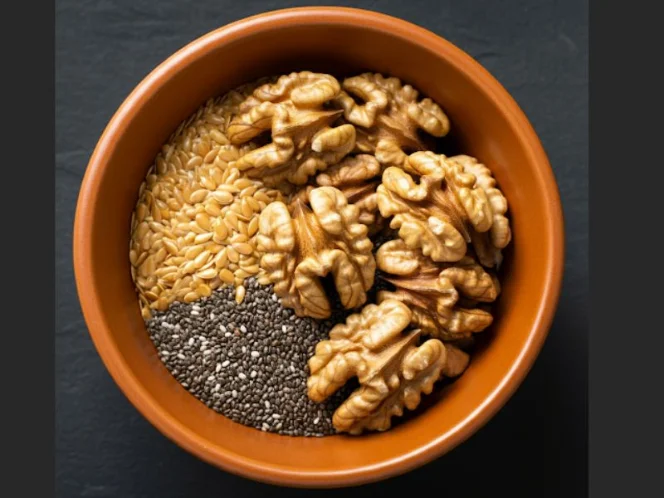
Omega-3 fatty acids are essential fats that play a vital role in heart health, brain function, and reducing inflammation. While fatty fish are a common source of omega-3s, plant-based diets offer excellent alternatives.
Flax seeds, chia seeds, and walnuts are rich in alpha-linolenic acid (ALA), a type of omega-3 that your body can convert into other essential omega-3s, EPA and DHA. However, the conversion rate may be limited, so consider incorporating algae oil, a direct source of EPA and DHA, into your diet.
By ensuring you’re getting enough of these essential omega-3s, you can support your cardiovascular health, cognitive function, and overall well-being on a plant-based diet.
Building a Balanced Plant-Based Plate: Your Guide to Nutritional Harmony
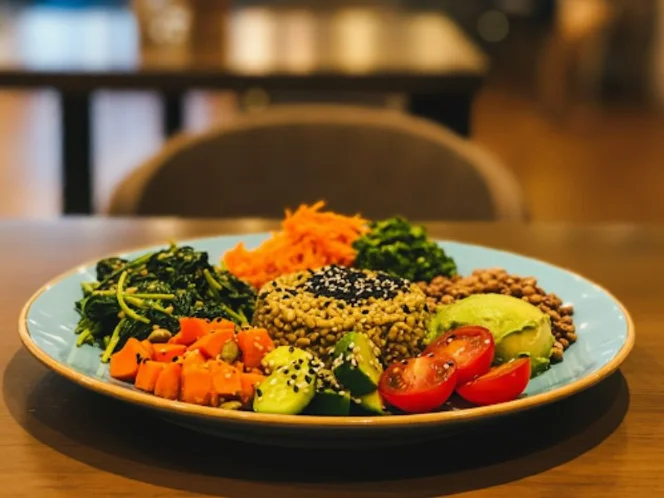
Creating a balanced plant-based plate is essential for ensuring you’re getting all the nutrients your body needs to thrive. It’s about more than just excluding animal products; it’s about embracing a variety of whole foods, prioritizing nutrient density, and enjoying delicious, satisfying meals.
Focus on Whole Foods: Nature’s Nutrient Powerhouses
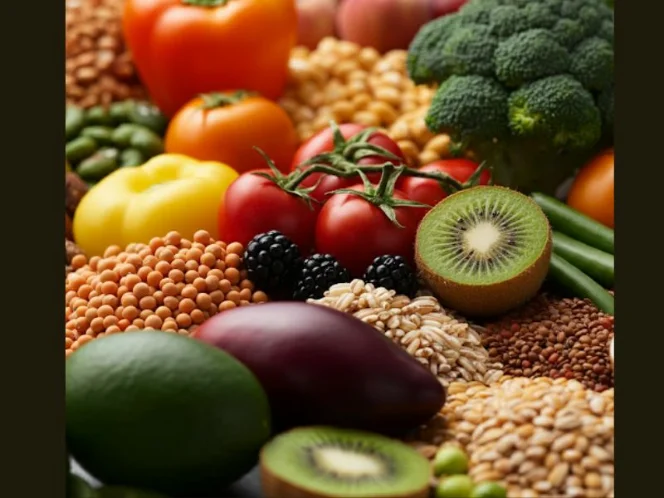
The foundation of a healthy plant-based diet lies in whole, unprocessed foods. These nutritional powerhouses provide a wealth of vitamins, minerals, antioxidants, and fiber, supporting your overall health and well-being.
Fill your plate with an abundance of:
- Fruits: Berries, bananas, apples, oranges, mangoes
- Vegetables: Leafy greens, broccoli, carrots, peppers, sweet potatoes
- Whole grains: Brown rice, quinoa, oats, whole-wheat bread
- Legumes: Lentils, chickpeas, black beans, kidney beans
These whole foods provide a diverse range of nutrients and help to create satisfying and flavorful meals.
Include a Variety of Protein Sources: Beyond the Bean
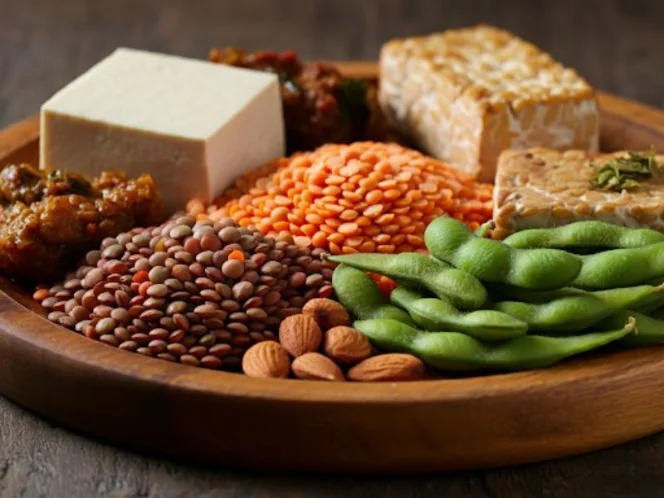
While legumes are excellent sources of plant-based protein, it’s important to diversify your protein intake to ensure you’re getting all the essential amino acids your body needs.
Explore a range of protein options:
- Soy products: Tofu, tempeh, edamame
- Nuts and seeds: Almonds, walnuts, chia seeds, hemp seeds, pumpkin seeds
- Whole grains: Quinoa, brown rice, oats
- Other: Certain vegetables like broccoli and spinach also contribute to your protein intake.
By incorporating a variety of protein sources, you can create delicious and satisfying meals while supporting your muscle growth, repair, and overall health.
Don’t Forget Healthy Fats: Essential for Vitality
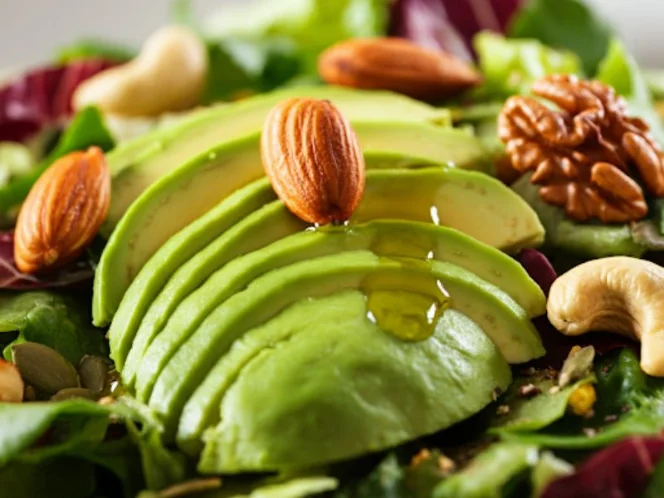
Healthy fats are essential for hormone production, cell function, nutrient absorption, and overall well-being. Don’t shy away from incorporating these vital nutrients into your plant-based plate.
Include sources of healthy fats like:
- Avocados: A creamy and versatile fruit packed with monounsaturated fats and fiber.
- Nuts and seeds: Almonds, walnuts, chia seeds, flax seeds, and hemp seeds provide healthy fats, protein, and fiber.
- Olive oil: A heart-healthy oil rich in monounsaturated fats and antioxidants.
- Other: Coconut oil, avocado oil, and nut butters can also be incorporated in moderation.
These healthy fats add flavor and satisfaction to your meals while supporting your body’s vital functions.
Limit Processed Foods: Choose Whole Foods Over Vegan Junk Food
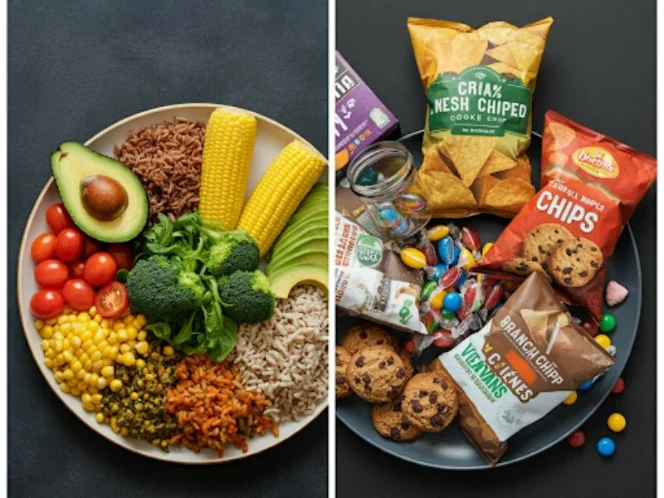
While vegan and vegetarian options are becoming increasingly available, it’s important to be mindful of processed foods, even if they’re plant-based. Vegan junk food can still be high in unhealthy fats, added sugars, and sodium, contributing to health issues.
Prioritize whole, unprocessed foods over processed vegan alternatives. Choose whole fruits over fruit juices, whole grains over refined grains, and homemade meals over packaged snacks.
By focusing on whole foods, you can ensure you’re getting the maximum nutritional value from your plant-based diet and supporting your long-term health.
Meal Planning and Preparation: Making Plant-Based Eating Convenient and Enjoyable

Planning and preparing your meals in advance can make plant-based eating more convenient and enjoyable. It helps to ensure you’re getting a balanced and varied diet while saving time and reducing stress during busy weekdays.
Here are some tips for successful plant-based meal planning:
- Create a weekly meal plan: Plan your meals for the week ahead, considering your schedule and dietary preferences.
- Batch cook: Prepare larger quantities of staple foods like grains, legumes, and vegetables to use in multiple meals.
- Utilize leftovers: Transform leftovers into new and exciting dishes to minimize food waste and save time.
- Pack healthy snacks: Keep nutritious snacks on hand, such as fruits, vegetables, nuts, and seeds, to avoid unhealthy temptations.
- Explore plant-based cookbooks and online resources: Discover new recipes and meal ideas to keep your plant-based journey exciting and flavorful.
By incorporating these meal planning strategies, you can make plant-based eating a sustainable and enjoyable part of your lifestyle.
Embrace the Plant-Powered Path: Your Journey to Vibrant Health and a Sustainable Future

As we conclude our exploration of plant-based diets, it’s clear that this way of eating offers a wealth of benefits, from promoting personal well-being to contributing to a healthier planet.
We’ve explored the diverse spectrum of plant-based eating, from veganism to flexitarianism, and debunked common myths about protein and athletic performance. We’ve also delved into essential nutrients, empowering you to create a balanced and nourishing plant-based plate.
By embracing whole foods, prioritizing variety, and practicing mindful meal planning, you can unlock the transformative power of plant-based eating. You’ll not only nourish your body with essential vitamins, minerals, and antioxidants but also contribute to a more sustainable and compassionate food system.
Take Action: Plant the Seeds of Change Today!

Ready to embark on your plant-powered journey? Start by incorporating more plant-based meals into your weekly routine. Experiment with new recipes, explore diverse cuisines, and discover the abundance of flavors and textures the plant kingdom offers.
Remember, every step you take towards a plant-based lifestyle is a step towards a healthier you and a healthier planet. Embrace the journey, savor the deliciousness, and experience the transformative power of plant-based eating.
Final Tip: Connect with a supportive community! Whether it’s online or in person, find like-minded individuals who share your passion for plant-based living. Sharing experiences, recipes, and encouragement can make your journey even more enjoyable and fulfilling.

